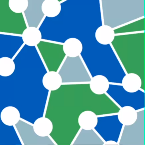Difference between revisions of "Tutorials"
| Line 8: | Line 8: | ||
All data sets used in the tutorials are available from the [[Download#Tutorial_data | download area]] of our site. | All data sets used in the tutorials are available from the [[Download#Tutorial_data | download area]] of our site. | ||
| − | == | + | ==Using the basic framework of geWorkbench: Projects, files and data== |
===[[Tutorial - Getting_Started | Getting Started]]=== | ===[[Tutorial - Getting_Started | Getting Started]]=== | ||
| Line 36: | Line 36: | ||
Survey of geWorkbench visusaliztion tools for microarray data. | Survey of geWorkbench visusaliztion tools for microarray data. | ||
| + | ==Individual analysis and visualization components== | ||
===[[Tutorial - ARACNE | ARACNE]]=== | ===[[Tutorial - ARACNE | ARACNE]]=== | ||
Revision as of 12:40, 27 July 2009
The tutorials shown on this page provide a quick introduction to the most important features of geWorkbench. Additional information can be found in the User Guide and in the Online Help section of the program.
All data sets used in the tutorials are available from the download area of our site.
Using the basic framework of geWorkbench: Projects, files and data
Getting Started
Obtaining and installing geWorkbench. Requirements.
Basics
A brief introduction to the use of geWorkbench.
Tutorial Data
Data Subsets
Subsets of both markers and arrays can be defined for targeted analysis.
Projects and Data Files
Creating projects, loading microarray data files, merging into one dataset, and saving.
Project Details
Local Data Files
Remote Data Sources (caArray)
Viewing a Microarray Dataset
Survey of geWorkbench visusaliztion tools for microarray data.
Individual analysis and visualization components
ARACNE
Formal method for reverse Engineering - microarray datasets can be analyzed for interactions between genes. Now includes new ARACNe2, which implements the much faster Adaptive Partitioning algorithm and accurate parameter estimation.
BLAST
Submits BLAST jobs to the NCBI server and displays and allows further interaction with alignment results.
Cellular Networks KnowledgeBase
Classification
Clustering
Data can be clustered using a fast hierarchical clustering routine, as well as SOMs.
Cytoscape
Cytoscape is used to display network interaction diagrams (from adjacency matrices). It features two-way interaction with the geWorkbench Markers component.
Differential Expression
Several variants of the t-test are available.
Expression Value Distribution
View and manipulate a histogram of the distribution of expression values for each array.
Filtering and Normalizing
geWorkbench provides numerous methods for filtering and normalizing microarray data.
GO Term Enrichment
Not in current releases.
Jmol
Jmol is a molecular structure viewer for viewing PDB format files.
Marker Annotations
Marker annotations can be retrieved, including BioCarta pathway diagrams.
MatrixREDUCE
MINDy
Pattern Discovery
Upstream seqeunce can be analyzed for conserved sequence patterns.
Promoter Analysis
Search a set of sequences against a promoter database.
Sequence Retrieval
Genomic sequences for markers can be retrieved for further analysis.
Coming Soon
Tutorials for a number of components are under development, including:
- ANOVA
- caGrid v1.3 - How the geWorkbench grid services are set up using caTransfer.
- Expression Profiles
- Sequence (Viewer)
- Marker Annotations - will be updated to add Cancer Gene Index integration.
Gene Pattern components:
- PCA (GenePattern) - Analysis and Viewer
- K-nearest neighbors (GenePattern)
- SVM 3.0 (GenePattern) - Analysis and Viewer - include, we need to develop online help and tutorial (Aris).
- WV - Weighted Voting (GenePattern)
